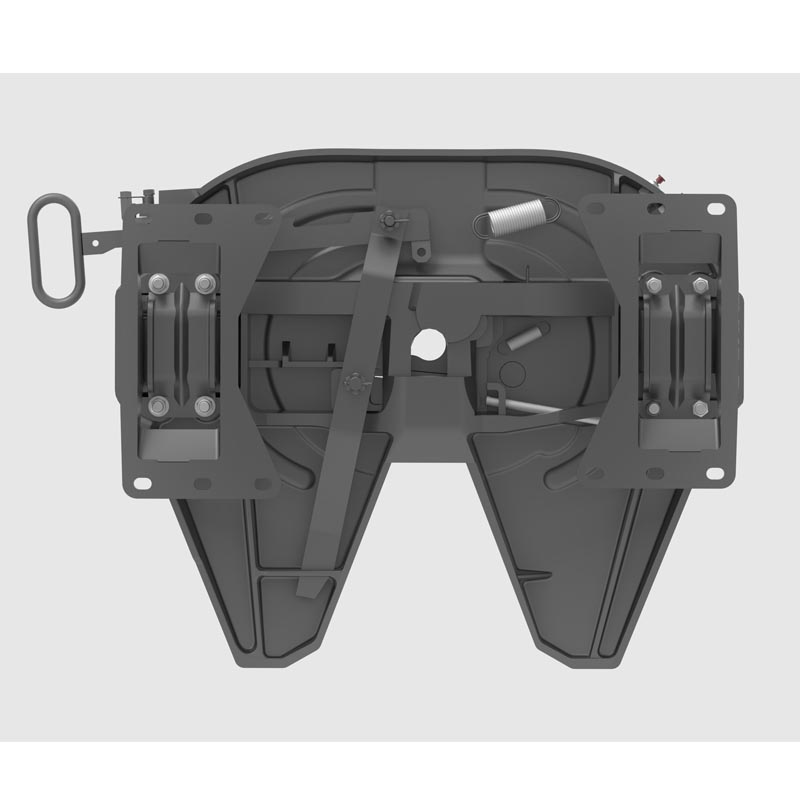Apr . 24, 2024 12:05 Back to list
Questions to Ask When Shopping for Your Fifth Wheel Hitch fifth wheel coupler
If you’re in the market for a fifth-wheel RV that offers ample space, expansive floor plans, and top-tier amenities, you’re on the right track. Fifth-wheel RVs provide the ultimate way to travel with all your desired comforts while keeping your truck conveniently close for excursions into town. However, it’s important to remember that fifth wheels need to be towed by a pickup truck, necessitating a specialized hitch mechanism for the connection.
High quality JSK casting fifth wheel 37C
Selecting the right hitch is crucial to enjoy the advantages of a fifth-wheel RV fully. Fortunately, making the correct choice isn’t overly complicated. By asking a few key questions during your shopping process, you can ensure that you find the ideal hitch for your needs. Make sure to inquire about the following:
What Is the Weight Capacity of the Fifth Wheel Hitch?
Towing an RV that exceeds your truck’s capacity can lead to significant damage to your property and pose safety risks. To determine your towing capacity, consult the owner’s manuals for your truck and RV, specifically looking for their Gross Vehicle Weight Rating.
Remember that you should account for the fully loaded weight of the vehicles, including passengers, fuel, accessories, and all the gear and equipment you intend to carry. After all, the essence of an RV is to accommodate people and belongings in abundance.
What Type of Fifth Wheel Hitch Is Right for My Truck and Trailer?
Selecting the appropriate hitch type that matches your truck and trailer specifications is essential. Compatibility ensures safe and secure towing. Factors like the size and weight of your RV and truck, as well as your intended use, will guide your choice. Seek expert advice or consult with a reputable hitch provider to identify the ideal hitch for your specific setup.
When it comes to selecting the right hitch type, there are a few factors that you should consider. First and foremost, you need to look at the size and weight of both your truck and trailer. This information will determine what class of hitch you will need.
Another important factor is your intended use for the hitch. Will you be towing frequently or only occasionally? Will you be carrying heavy loads or just a few items? These factors will also play a role in determining the appropriate hitch type for your needs.
In addition to these factors, it’s also important to consider the type of trailer you will tow. Different types of trailers, such as fifth wheels or travel trailers, may require different hitch options. It’s crucial to ensure that your hitch is compatible with your specific trailer type.
What Features Are Important to Me in a Fifth Wheel Hitch?
Consider any additional accessories or features you might need, such as a backup camera, towing mirrors, or brake control. It’s advisable to acquire these accessories simultaneously with your hitch purchase, ensuring you’re well-prepared for your travels. Adding accessories and features to your hitch can greatly enhance the functionality and convenience of your towing experience.
-
Why Are Specialized Components Crucial in Commercial Vehicle Maintenance and Operation?
NewsJul.28,2025
-
Why Are Fifth Wheels Critical for Trucking and How to Select the Right One?
NewsJul.28,2025
-
What Defines the Excellence of American Trailer Components in Key Markets?
NewsJul.28,2025
-
What Defines the Excellence of American 5th Wheel Systems and Their Market Offerings?
NewsJul.28,2025
-
How Do 5th Wheel Trailers Redefine Towing and Living Standards?
NewsJul.28,2025
-
How Do 5th Wheel Systems Enhance Commercial Hauling Efficiency and Versatility?
NewsJul.28,2025

